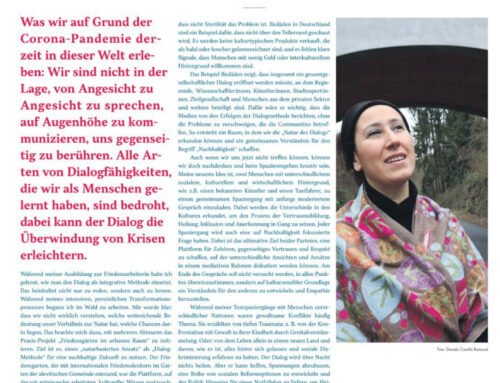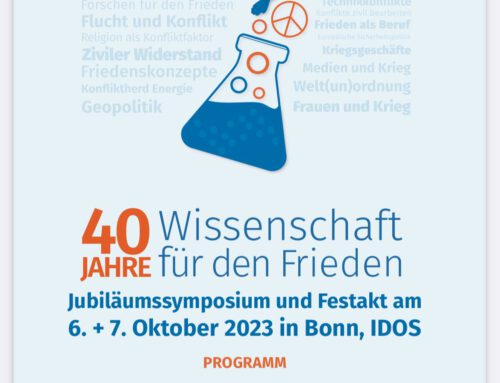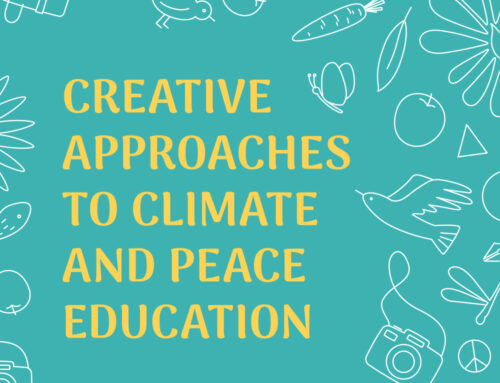The transformative power of cities is key to delivering a just and sustainable future, but this can’t be executed without recognizing that cities are shared spaces with people from a variety of cultures. Reaching the many veins of society, can only be reached by a new Peacebuilding process. The idea is to focus on building relationships that collectively form new patterns, processes and structures which can play a constructive role. This includes new Open Spaces: ideas not only about physical open spaces and biodiversity protection initiatives, but changes in gender-equality, decision-making processes with marginalized groups, trust-building and social justice. There are four main challenges:
- The difficulty of incorporating marginalised groups into knowledge production processes;
- Internal conflicts due to gender inequality;
- Decision makers are often more interested in macro-level issues; and
- There is little interest in analysing and resolving the root causes of social injustices for sustainable policy recommendations.
Towards transforming such conflicts in the field and through nature-based implementations, peacebuilding methods can be utilized for into micro (-individual-) and local level solutions for a just and sustainable urban transformation process.
This Brief proposes solutions by sharing positive results from field research on how to take steps towards making our societies and economies more resilient and cohesive, and serve the public interest, particularly that of marginalised groups. The first step should be evaluating and implementing a Peacebuilding process to create new Open Spaces for urban development and shaping social innovation. This involves debate regarding the architecture, design, digital arts and urbanism that positively impact to find solutions. The Peacebuilding process allows for the opening of Peace Gardens or spaces to break down silos for a free-flow knowledge process in nature and where utopia becomes reality. It is a basic human right for everyone to share access to nature-rich local spaces, clean water, healthy food for justice. Lastly, this Brief proposes the benefit of using all variety of channels as constructive transformation tools which have been implemented in the field to promote Positive Peace with each other, neighbours and nature in an urban environment for future generations.
This policy brief has been prepared by Burcu Eke-Schneider on behalf of the Task Force created under Think7.



